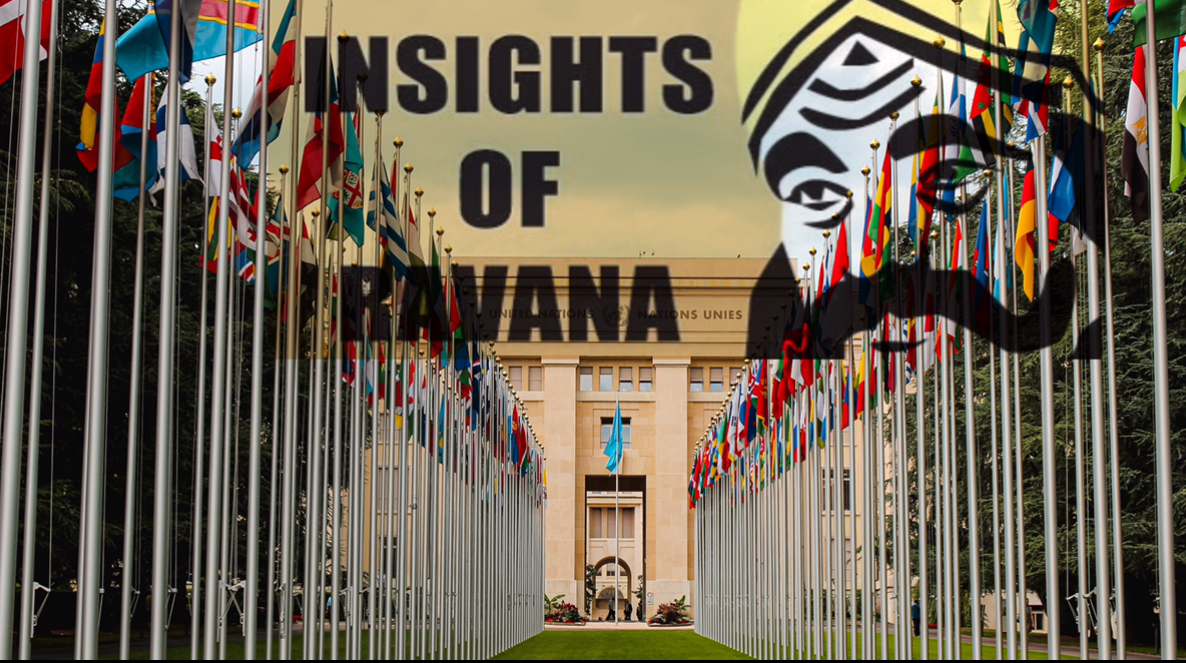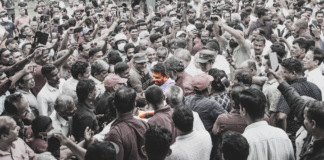null (1) Shani filesIn this backdrop, Sri Lanka may not oppose or contest any resolutions against the country, but on the contrary, they may go along with it and buy time to fulfil the obligations. Nevertheless, Sri Lanka’s biggest drawback would be the ever-increasing human rights abuses that go unchecked. The SLPP government is trying its best to avoid any confrontation with the international community since the country is encountering the worst ever economic crisis in recent history. They may not want to lose the GSP+
The Prevention of Terrorism Act (PTA) No 48 of 1979 has come under heavy fire and criticism over the past few weeks after the government moved to amend the provisions in the controversial law to relax several stringent clauses it contained.
The PTA has been in force for the last forty-three years, although initially it was a temporary measure taken by the Jayewardene government to deal with LTTE terrorism. After 43 long years, people opine that the PTA is redundant and not needed anymore.
As it stands today, there are no calculated or identified threats or risks emanating from the LTTE or any other terrorist outfit. However, the government has a different timetable because it can use this draconian piece of legislation on and off to silence it’s political opponents.
Hence the call to repeal the PTA is gathering momentum by the day as never before since it will be dangerous for a government to have such legislation in their armoury during peace times.
The call for abolition came from the Tamil National Alliance with M. A Sumanthirangiving leadership to it. It may be because the Tamil community has been at the receiving end for inordinate periods since this legislation came into force in 1979.
The allegation which is currently being levelled against the government is that the authorities are abusing the Act by by–passing the ordinary laws of the land to harass the people. Almost thirteen years after the LTTE threat has elapsed, the government is still using a relatively archaic law when the world has moved forward and is exploring new ways with new dimensions to deal with terrorism.
It is now time for the people to take cognizanceof this unusual phenomenon and join hands with the campaigners in the call for its abolition. It preposterously curtails the civil liberties guaranteed by the constitution.
Foreign Minister G.L Peiris had told several NGO officials that the President in particularhad directed the Police to refrain from using the PTA, as opposed to the ordinary laws, to arrest people. The minister also told the NGO delegation that the government will amend the law accordingly to meet international commitments. The European Union, having perused the government’s proposed amendments expressed their consternation. The conclusion was that it fell short of their expectations.
Sri Lankan civil society and activists recently took an unusual step to collect signatures for the total abolition of the law. Several others challenged the proposed amendments for their constitutionality before the Supreme Court. They sought a declaration that it needed a two-thirds majority of the total number of members of parliament and approval by the people at a referendum.
In a recent judgement delivered by the Court of Appeal, where the Court enlarged on bail lawyer Hejaaz Hisbullah after a long drawn legal battle for his freedom, the Appeal Court stated that:
Four decades have passed and the PTA has strayed far away from its historical context. The PTA, if in its application and implementation creates a vicious cycle of abuse, the very purpose of the statute will be defeated. The preamble of the Act refers to the affirmation that “…….men and institutions remain free only when freedom is founded upon respect for the Rule of Law and that grievances should be redressed by constitutional methods…….” (emphasis added). However, it is alleged that the PTA has been utilised at times to the detriment of personal liberty by its draconian implementation. In such a context, even the executive branch of the government is considering the amendment of the PTA (The gazette of the Democratic Socialist of Sri Lanka Part II of January 21, 2022; Issued on 27.01.2022 and published by the Minister of Foreign Affairs), expressing a willingness to balance the need to eradicate terrorism against personal liberty as enshrined in the fundamental rights chapter of the constitution.
The call for the abolition of this draconian piece of legislation was given an impetus by the Archbishop of Colombo Malcolm Cardinal Ranjith, who readily signed the document presented by TNA Parliamentarian ShanakiyanRajaputhiran Rasamanickam. The Archbishopwas initially backing the call by the Sri Lanka Podujana Party (SLPP) for a regime change in 2019. The idea was to seek justice for the victims of the terror of the Easter Sunday attack on the churches as pledged by the SLPP.
The Catholic church had faith in the new regime without an iota of reservation. After all, the new regime pledged to bring justice to all. However, the archbishop later realised that was an effort put into practice without noticeable results. The issue has now taken international dimensions with the involvement of the Vatican. The matter has also reached the portals of the United Nations Human Rights Council office in Geneva. In the meantime, the archbishop has undertaken a visit to the Vatican seeking assistance to dispense justice.
The archbishop ended his short affinity and sojourn with the new government the hard way when he realised that his word was not heard and cared for by the higher echelons of government.
Now, the archbishop is on a different footingand is critical of the government and even the attorney general for his inability to take action on the recommendations of the Special Presidential Commission that probed the Easter Sunday attack.
He was equally concerned about the fate of Shehan Malaka Gamage, an activist who was arrested by the CID because of a statement he made about the Easter Sunday attacks during a media briefing last year. He had been arrested on the advice of the Attorney General.
However, the government refrained from using the PTA but the ordinary law to arrest Malakawho was later released on bail by the Maligakanda Magistrate after the Police produced him in Court. The government soft peddled this and many other issues to offsetpossible attacks on human rights issues at the UNHRC which will start its sessions later this month. Now that the USA has become a member once again under the Biden administration, the world policeman is poised to take a hard look at Sri Lanka’s human rights record.
It may be the greatest possible worry of ForeignMinister G.L Peris who will be called upon to answer a barrage of questions which will be posed at him.
Meanwhile, the government’s responses to the initial queries by the UNHRC, which came with a deadline of February 18, were forwarded, and the rest will follow in Geneva.
Minister G.L Peris may find it extremely difficult to handle the situation in Geneva with a delegation which has little experience dealingwith such intricate issues.
In this backdrop Sri Lanka may not oppose or contest any resolutions against the country, but on the contrary, they may go along with it and buy time to fulfil the obligations. Nevertheless, Sri Lanka’s biggest drawback would be the ever-increasing human rights abuses that go unchecked. The SLPP government is trying its best to avoid any confrontation with the international community since the country is encountering the worst ever economic crisis in recent history. They may not want to lose the GSP Plus, a preferential scheme devised by the European Union that reduces or eliminates tariffs on a range of exports from developing countries. It promotes sustainable development and good governance in the developing world.
Sri Lanka is finally determined to adopt a non-confrontational path as done by the Yahapalanagovernment from 2015, spearheaded by its late Foreign Minister Mangala Samaraweera.
Mangala Samaraweera and the Yahapalanagovernment were vilified by the present regime when in opposition, saying the previous administration betrayed the country to the western powers and called them lackeys of the west. The patriotic heroes of the SLPP regime have put both their feet in their mouths and acted like dumb men in the present phase of the crisis. They know very well that no country can drift away in isolation and hence, have taken a subdued attitude to surmount the imminent dangers of sanctions imposed by the world community.
The problems faced by Sri Lanka at the UNHRC are complicated and Sri Lanka is averse to the war crime prosecutions that would place the administration in an awkward position. Hence, they may try to buy time over such allegations and is likely to talk about a local mechanism to deal with such complex issues.The position taken by different governments throughout was that the judicial system in Sri Lanka is capable enough to handle war crime issues and crimes against humanity. Nevertheless, the UNHRC is sceptical of Sri Lanka’s position. In this emerging political scenario, the stand taken by India is of critical importance. India’s preferences are a matter of solace for Sri Lanka, if there are any, especially after the Colombo Port East terminal fiasco.
Although India’s stance on Sri Lanka’s predicament is not known, the giant neighbouris yet to commit to throwing a lifeline to Sri Lanka at the UNHRC.
On one occasion India moved swiftly to dilute the UNHRC resolution against Sri Lanka but on the last occasion they remained non-committal. Will that be their stand even on this occasion? India could be a game-changer for Sri Lanka as far as the UNHRC resolution is concerned. The pertinent question is whether the G.L Peris- Jaishankar talks had not borne any fruit.
Besides all this, the Easter Sunday attacks havetaken a fresh turn with former CID Director ShanI Abeysekara filing a FR petition in the Supreme Court to avert any attempt by the Police to arrest him on the pretext of dereliction of duties as far as the Easter attacks are concerned.
In his petition Shani Abeysekara talks about the controversial “sonic, sonic” ‘who figured in Parliament’ as the mysterious person who was a subject of the Easter Sunday attackinvestigations but was being shielded by interested parties in the intelligence apparatus on the pretext that exposing him would harm the intelligence outfit.
Shani Abeysekara states that after the Easter Sunday attacks the CID officers became aware through the American Federal Bureau of Investigation (FBI) about an Internet Protocol(IP) address belonging to an individual who had been in frequent communication with M.C.M. Saharan. It had been discovered by analyzing computers, mobile devices and internet accounts tied to the Easter attackers. He states that the CID began interrogating the said individual who refused to give any information about hisconnection to M.C.M. Saharan or to the National Thowheed Jamath. Abeysekara further states that thereafter, the Ministry of Defense through the then DMI (Directorate of Military Intelligence) Director Brigadier Chula Kodithuwakku prevented the CID from detaining the said individual, asserting that that the activities of the said individual were classified as national security.
Shani Abeysekara further states that through the investigations conducted after the Easter attacks,the CID was able to find out about a person called ‘Podi Saharan’ alias ‘Matale Saharan’who lived in Matale and who had connections with the NTJ. He further states that PodiSaharan was arrested by police officers attached to the Matale police station and later on the same day he was again arrested by the CID.
For full details of the petition filed by Shani Abeysekaa please read the attached document—.





